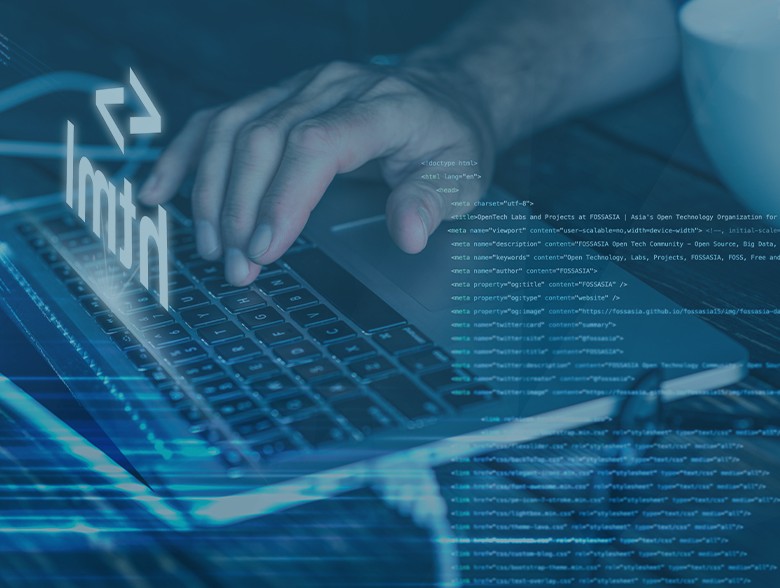How blockchain-powered software is preventing cyber attacks
By Ramon AB, CEO and Co-Founder of Nova Technology
Invoicing may not be the first thing that pops up in a conversation around cyber attacks, but undesirable incidents in the business world serve as glaring reminders as to why we shouldn’t think of invoicing fraud as an afterthought. Across geographies and industries, fraudulent invoicing practices such as invoice manipulation, impersonation or diversion of funds have cost businesses heaps of money, reputation and more. Lying at the heart of financial transactions and business operations, invoicing holds substantial value for organizations and cybercriminals alike, making it a prime target for cyber attacks.
How does it affect business operations?
Take the case of fraudulent invoices, which may appear almost imperceptibly legitimate, being sent to businesses. A lot can go wrong if these invoices are paid without proper verification- the business can suffer financial losses affecting their cash flow, profitability, and even overall financial stability. It doesn’t end there. Incidences like these destabilize public trust in the organization’s competence to safeguard sensitive information and shield themselves against cyber threats, leading to strained relationships or even a potential loss of customers and business opportunities. Additionally, businesses may face legal and regulatory consequences including penalties; legal battles are never easy.
Reliance on traditional systems and resultant vulnerabilities
Centralized databases, manual processes and paper-based documentation make traditional invoicing systems more susceptible to cyber attacks, especially today when technology is advancing at an unprecedented pace, and is being made accessible to everyone- including malicious actors ready to take advantage of vulnerabilities.
Inherent vulnerabilities of systems aside, cybercriminals are also adept at exploiting human vulnerabilities through phishing attacks, initiating unauthorized attacks or deceiving individuals into disclosing confidential information. It’s not surprising how social engineering is a much preferred technique for fraudsters to entrap their victims. As convenient as email communications are in many business settings, when it comes to invoicing processes, such modes of communication including manual data entry, make it easier for fraudsters to manipulate invoices, impersonate legitimate vendors or redirect payments to fraudulent accounts.
For instance, using techniques such as email spoofing to mimic the email addresses and domains of trusted entities, hackers send fraudulent invoices that appear to be from legitimate sources. Needless to say, this leads to unauthorized fund transfers- thanks to altered payment information on the compromised invoice. Hackers may also intercept the transmission of invoices between the sender and the recipient, and subsequently alter payment details to modify the invoice during transit.
Sometimes scamsters go a step further and create counterfeit vendor accounts or impersonate trusted entities while submitting fraudulent invoices to businesses. Unaware of the deceit, organizations may process these invoices, leading to financial losses and ensuing legal complications. As a case in point, consider the million dollar scam that cost tech giants like Google and facebook $122 million many years ago. Fast forward to the beginning of this year and we had the PayPal scam doing rounds.
Blockchain: Safeguarding invoicing processes against fraudulent activities
It’s no surprise that with sophisticated technology becoming increasingly accessible to common man, the potential for its misuse is also bound to spiral out of control. Take generative AI for example- its ability to generate humanesque text and multimedia content makes it easier for bad actors to impersonate others and manipulate sensitive information. However, technology being extremely dynamic, has a solution for (almost) everything. The area of invoicing is no exception. Enter, blockchain technology.
Blockchain brings a commendable level of tamper-proof integrity to invoicing, by providing an immutable ledger that meticulously records every transaction. This means that once a transaction is recorded, it cannot be altered or deleted, making it exceedingly difficult for fraudsters to manipulate invoicing data or illegitimately generate invoices bypassing detection. Risk minimization of this scale, that’s characteristic of blockchain, can be attributed to something that’s inherent to the network that it operates on- decentralization. By functioning on a network without a central authority, the ledger is distributed across multiple systems, eliminating the need for constant supervision and manual intervention in the invoicing process. Ultimately, this decreases the likelihood of corruption or fraud.
While there are numerous advantages businesses can enjoy by integrating blockchain into their invoicing processes, here are a few most compelling reasons:
Immutable Ledger & Encryption: As briefly mentioned above, blockchain’s immutability ensures that an invoice once recorded on the blockchain cannot be altered or tampered with. This is because each transaction is linked to the previous one through cryptographic hashes, forming a resolute chain of records. Given that the transactions and records stored on the blockchain are thoroughly encrypted, data stays secure and is also rendered inaccessible to those unauthorized. The encryption also adds an extra layer of protection to ensure that confidential information such as invoice details and financial data remains secure throughout the invoicing process.
Transparency & Traceability: All business transactions involve multiple parties making decisions, initiating payments, buying and selling. That is to say there is always room for miscommunication or communication gaps when there are multiple parties involved. Blockchain also comes through to save businesses the trouble of such inconveniences. All participants in a given network can view and verify transactions- this transparency acts as a solid deterrent to fraud by lending accountability and thereby reducing the likelihood for fraudulent activities going undetected.
Smart Contracts & Automation: With the reign of blockchain technology, another disruptive tool that’s transforming the business landscape are smart contracts. As self-executing contracts that embody the terms of the agreement within their code itself, smart contracts can be programmed to automatically verify and execute invoices according to predetermined conditions. This can include payment terms, conditions and delivery requirements. This automation reduces the reliance on manual processes, minimizing human errors and potential vulnerabilities. For instance, consider what this means for the legal teams and legal domain in general- less time fixing problems and more time spent preventing them.
Enhanced Security: By employing robust encryption algorithms to secure data, blockchain-powered invoicing solutions protects organizations from unauthorized access and manipulation. Its decentralized nature amplifies security by eliminating single points of failure and ultimately reducing the risk of cyber attacks. This makes things substantially difficult for attackers to compromise the entire network as that would require them to gain control of a majority of the nodes simultaneously. Simply put, even if one node is compromised, the security of the network would remain intact due to the consensus mechanisms implemented by blockchain protocols.
Blockchain’s immense potential to drastically reduce the time, cost, risk and complexity that accompanies transactions has already initiated a paradigm shift in business operations, particularly in the realm of invoicing. As fraudsters and malicious actors steer ahead armed with sophisticated tools of attack, it’s up to organizations to stay several steps ahead in security- and blockchain technology is an inevitable instrument in their arsenal today.
About the Author
 Ramon AB is the CEO and Co-Founder of Nova Technology. Ramon, together with his brother Pascual founded the company. The brothers knew they wanted to start a company together, so they raised their start-up capital by maximizing their student loans. Dissatisfied with the inertia of ICT service providers, they soon decided that they would be better off taking ICT into their own hands. Nova Technology’s credit management software is powered by blockchain and provides a transparent and easy billing process to support the entire supply chain. The enterprise also utilizes IoT and smart contracts to enable real-time monitoring and invoicing of shipments throughout supply chain operations, leaving no leeway for human error or fraud. Now, Nova Technology has grown worldwide with offices in Singapore, Tokyo, Dubai, Toronto, and New York.
Ramon AB is the CEO and Co-Founder of Nova Technology. Ramon, together with his brother Pascual founded the company. The brothers knew they wanted to start a company together, so they raised their start-up capital by maximizing their student loans. Dissatisfied with the inertia of ICT service providers, they soon decided that they would be better off taking ICT into their own hands. Nova Technology’s credit management software is powered by blockchain and provides a transparent and easy billing process to support the entire supply chain. The enterprise also utilizes IoT and smart contracts to enable real-time monitoring and invoicing of shipments throughout supply chain operations, leaving no leeway for human error or fraud. Now, Nova Technology has grown worldwide with offices in Singapore, Tokyo, Dubai, Toronto, and New York.


